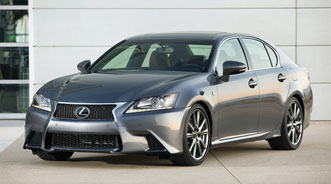Study: Dealers Show Improvement in Web Response Time, Luxury Nameplates Top Ranks

By subscribing, you agree to receive communications from Auto Remarketing and our partners in accordance with our Privacy Policy. We may share your information with select partners and sponsors who may contact you about their products and services. You may unsubscribe at any time.
MONTEREY, Calif. –
Numerous luxury nameplates are gaining traction with Web-surfing car shoppers as these dealers hone in on Internet leads and improve response time, according to the 2012 Pied Piper Prospect Satisfaction Index (PSI).
Per the results of the Internet Lead Effectiveness study which measures auto dealerships responsiveness to customer inquiries received over the internet, Lexus Infiniti and Acura dealerships ranked highest.
Study rankings by brand were determined by the Pied Piper PSI process, which ties "mystery shopping" measurement and scoring to actual industry sales success, officials noted.
The study measured 37 different combinations of dealership replies relying on automated and/or personal responses.
And though these luxury rooftops notched the top spots, industry-wide performance improved substantially from 2011 to 2012, with two-thirds of the 34 auto brands recording higher scores, officials shared.
Delving into the results more deeply, this past year dealerships on average responded to customer inquiries within 24 hours, 64 percent of the time.
Subscribe to Auto Remarketing to stay informed and stay ahead.
By subscribing, you agree to receive communications from Auto Remarketing and our partners in accordance with our Privacy Policy. We may share your information with select partners and sponsors who may contact you about their products and services. You may unsubscribe at any time.
Now in 2012, rooftops have improving to 78 percent of the time on average.
That said, there may still be room for improvement.
The 2012 study showed that results suggest that nearly one-in-four of today’s customer Internet inquiries remain unanswered after 24 hours, officials explained.
Most Improved Nameplates
The Big 3 fared well, according to the study, and continue to improve their deal response rates to internet inquiries.
Ford and Chrysler brands showed the most improvement from the previous year, with Ford, Lincoln, Chrysler, Dodge, Jeep and Ram dealerships improving the most.
Kia dealerships were also in the ranks of the most improved.
But officials noted that performance varied considerably from brand to brand, and also from year to year.
They cited the example of Mercedes-Benz dealerships climbing to the top of the category of telephone follow-up, with salespeople attempting to follow-up by telephone 74 percent of the time, compared to the industry average of 55 percent of the time.
Furthermore, Infiniti, Volvo and Mini dealerships answered specific customer questions more than 50 percent of the time, compared to the industry average of 27 percent of the time.
What do Dealers Use to Respond?
The study also showed that today, most dealerships rely on "Auto Responder" software to generate an automatic email reply to customer inquiries based upon information gleaned from the customer inquiry.
The study showed that 72 percent of customer inquiries were initially answered using an auto responder, while the first response was a personal email 18 percent of the time. And there was no dealership reply of any kind 10 percent of the time.
Commenting on these results, Fran O’Hagan, president and chief executive officer of Pied Piper Management Company LLC, said, "Simply responding to all customer internet inquiries is the first step,
"Include an auto response to promote the dealership and add a salesperson’s personal touch, and today a dealership will outperform three out of four competitors,” she added.
The company also highlighted another popular response strategy among dealers.
The most common dealership reply, occurring 16 percent of the time, was “a simple auto response promising that a salesperson would be in touch soon, followed by a personal email from a salesperson,” the study showed.
“Dealerships that follow this ‘simple’ process on average achieved a PSI-ILE score of 66; higher than any current brand average score,” officials explained.
Other effective dealership processes included both a "rich" auto response promoting the dealership and specific vehicles, as well as a personal response to answer questions to encourage next steps.
In contrast, dealerships that sent only a single auto response averaged a PSI-ILE score of only 26, while dealerships relying solely on one personal email averaged a PSI-ILE score of 59.
Highlighting the specifics of the study, the 2012 Pied Piper PSI Internet Lead Effectivenesswas conducted between September 2011 and March 2012 by submitting internet inquiries to a sample of 4,331 dealerships nationwide representing all major brands, officials noted.


